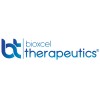
Evaluating Sublingual Dexmedetomidine For Moderate To Severe Agitation In Inpatients With Schizophrenia...
Schizophrenia AgitationSchizo Affective Disorder2 moreAn open-label, randomized, active control inpatient trial to evaluate the efficacy and tolerability of sublingual dexmedetomidine for the treatment of agitation in inpatients with schizophrenia or bipolar disorder as measured by the Positive and Negative Syndrome Scale - Excited Component (PANSS-EC) and Agitation-Calmness Evaluation Scale (ACES). Lorazepam will serve as the active control.

BXCL501 for Agitation in Schizophrenia
SchizophreniaSchizoaffective DisorderAgitation is characterized by excessive motor or verbal activity, irritability, uncooperativeness, threatening gestures, and, in some cases, aggressive or violent behavior. While agitation may have various underlying causes, patients with schizophrenia are especially vulnerable to acute episodes of agitation, especially during exacerbation of disease, and clinicians do not always diagnose these episodes early enough. Agitation associated with psychosis is a frequent reason for emergency department visits, and unless it is recognized early and managed effectively, it can rapidly escalate to potentially dangerous behaviors, including physical violence. Educating psychiatric professionals about the timely and accurate diagnosis of agitation among patients with schizophrenia or bipolar disorder and developing a well-tolerated easily administered medication will contribute to the prompt and effective management of this condition and could help reduce the risk of violent behavior and other undesirable outcomes. This study is designed to identify the ideal dose range and tolerability of sublingual Dexmedetomidine in patients with schizophrenia.

A Rater-blinded RCT to Compare Effectiveness of EMDR vs TAU in Patients With First Episode Psychosis...
Psychotic EpisodePsychological TraumaThe main objective of this project is to analyze whether EMDR therapy, as an adjuvant to usual treatment, is effective in reducing post-traumatic stress and psychotic/affective symptoms in patients with a FEP and comorbid psychological trauma associated with first hospital admission and / or previous stressful life event.

Family-Focused Therapy for Individuals at High Clinical Risk for Psychosis: A Confirmatory Efficacy...
Psychotic DisordersProdromal Symptoms3 moreThe present study is a confirmatory efficacy trial of Family Focused Therapy for youth at clinical high risk for psychosis (FFT-CHR). This trial is sponsored by seven mature CHR clinical research programs from the North American Prodrome Longitudinal Study (NAPLS). The young clinical high risk sample (N = 220 youth ages 13-25) is to be followed at 6-month intervals for 18 months.

Determining Efficacy and Safety of BXCL501 in Agitation Associated With Pediatric Schizophrenia...
SchizophreniaSchizo-Affective Disorder3 moreThis is a study of the efficacy and safety of BXCL501 in children and adolescents with acute agitation and either bipolar disorder or schizophrenia.

Sodium Nitroprusside in Early Course Schizophrenia
SchizophreniaSchizoaffective DisorderPeripheral inflammation and microvascular dysfunction are central to the pathophysiology of schizophrenia (SZ). Retinal imaging allows for the accurate quantitative assessment of the condition of retinal microvessels, and early studies implicate microvascular dysfunction in SZ, but the specific pathophysiological mechanisms underlying greater length, density, capillary network and diameter are not yet entirely understood. Anti-inflammatory drug trials in SZ suggest that Early Course Schizophrenia (ECS) individuals with elevated peripheral inflammation show the greatest benefit to adjunctive anti inflammatory treatments. Also, there is a growing interest in the use of Sodium Nitroprusside (SNP) in SZ but further studies are needed as results are inconsistent. This study will determine the effectiveness of SNP on psychosis symptoms, cognition, and retinal measures in symptomatic ECS.

Comparing Two Behavioral Approaches to Quitting Smoking in Mental Health Settings
Tobacco Use DisorderMental Illness5 moreThe study team will conduct a Multisite Randomized Controlled Trial to evaluate the advantages and disadvantages of two approaches for quitting smoking among people with serious mental illness (SMI). The study will compare a novel app tailored to people with SMI, Quit on the Go, to a standard of care smoking cessation intervention. We will test the effectiveness of the Quit on the Go app, an intervention that has demonstrated feasibility and acceptability in the target population, as a tool for smoking cessation in people with SMI. Participants with SMI will be recruited across 2 sites (Duke University and Univ. at Buffalo).

Cannabidiol for Treatment of Non-affective Psychosis and Cannabis Use
Dual DiagnosisThis trial examines the efficacy of cannabidiol (CBD) versus risperidone for treatment of psychosis in patients with non affective-psychosis and lifetime use of cannabis.

Avatar-mediated Therapy Versus Cognitive Behavioural Therapy for Persisting Experiences of Hearing...
Auditory HallucinationPsychotic Disorders1 moreThe aim of this study is to compare the effects of a new psychological therapy, Avatar Therapy, to the current standard therapy, Cognitive Behavioural Therapy (CBT), in improving outcomes in people living with psychotic disorders who have persisting experiences of hearing voices (auditory verbal hallucinations, AVHs).

Effect of Immersive Virtual Reality-based Cognitive Remediation in Patients With Mood - or Psychosis...
Bipolar DisorderDepression4 moreThe goal of this clinical trial is to investigate the effect of a four-weeks, intensive virtual reality (VR)-based cognitive remediation (training) programme involving simulated daily-life challenges on cognition and functional capacity in symptomatically stable patients with mood disorders (depression or bipolar disorder) or psychosis spectrum disorders (F20-F29; e.g. schizophrenia or schizotypal disorder). The investigators hypothesize that VR-based cognitive remediation vs. a VR control treatment has a beneficial effect on cognition after four-weeks treatment completion (primary outcome assessement time) measured with a novel ecologically valid VR test of daily-life cognitive functions (The CAVIR test; primary outcome measure), a verbal learning and memory composite score based on a traditional neuropsychological test and a performance-based measure of daily functioning (secondary outcome measures). Finally, for exploratory purposes, the study will examine neuronal underpinnings of treatment effects, and effects on additional measures of cognition, functioning and self-ratings scales (tertiary outcomes).
